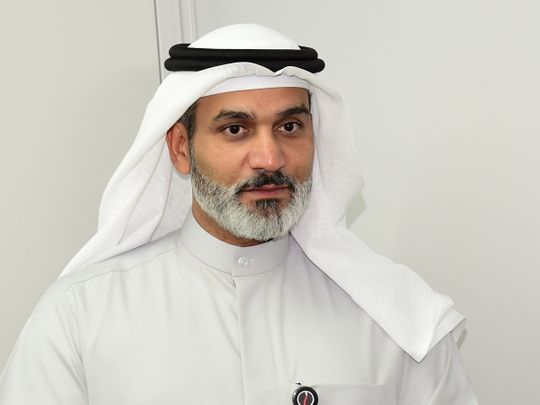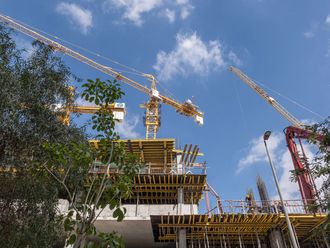
Abu Dhabi: Haitham Al Ghais, Secretary-General of the Organisation of the Petroleum Exporting Countries (OPEC), affirmed that the UAE has a major, important and pivotal role in securing oil supplies around the world, as it is one of the world's largest oil producers, and in light of future directions to raise energy productivity.
In his statement to the Emirates News Agency (WAM) coinciding with his taking of office as the OPEC Secretary-General, Al Ghais extended his sincere thanks and gratitude to President His Highness Sheikh Mohamed bin Zayed Al Nahyan for the UAE's support of his candidacy. He also expressed his appreciation to Suhail bin Mohammed Al Mazrouei, Minister of Energy and Infrastructure, and other proponents who helped garner the support of all OPEC member states, leading to his election last January.
Al Ghais said, "Today, we open a new page of cooperation, driving OPEC's rise to higher levels in the face of future roadblocks, in order to meet the various challenges in the energy arena in general, and the oil markets in particular, where many challenges, whether geopolitical, or COVID-19-related, are still affecting some regions of the world," noting that an action plan will be developed in consultation with the OPEC member states and technical committees, in line with OPEC's long-term strategy.
He explained that December 2022 will mark six years since the conclusion of the OPEC+ agreement, of which the UAE is a pivotal part, through its support and firm stance, adding that the UAE plays a leading role in backing the agreement by laying sound foundations and expanding its cooperation, which supports the interests of the market, consumers and oil-producing countries.
The new OPEC Secretary-General said that the UAE will host the 28th United Nations Climate Change Conference of the Parties (COP28) next year,The new OPEC Secretary-General said that the UAE will host the 28th United Nations Climate Change Conference of the Parties (COP28) next year, a platform that will enable OPEC member states to voice their opinions of oil-producing countries on energy transition, to ensure a balanced and fair transition inclusive of all stakeholders around the world, as well as avoid disrupting global economic activity and developmental efforts, and support optimal energy utilisation.








